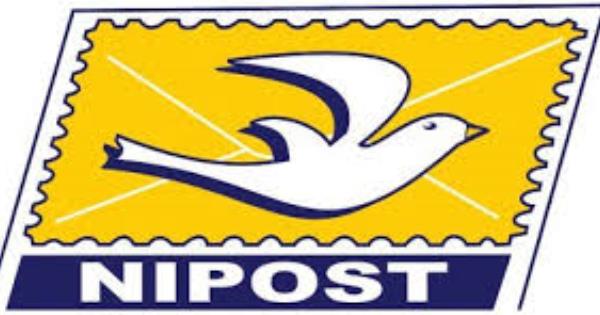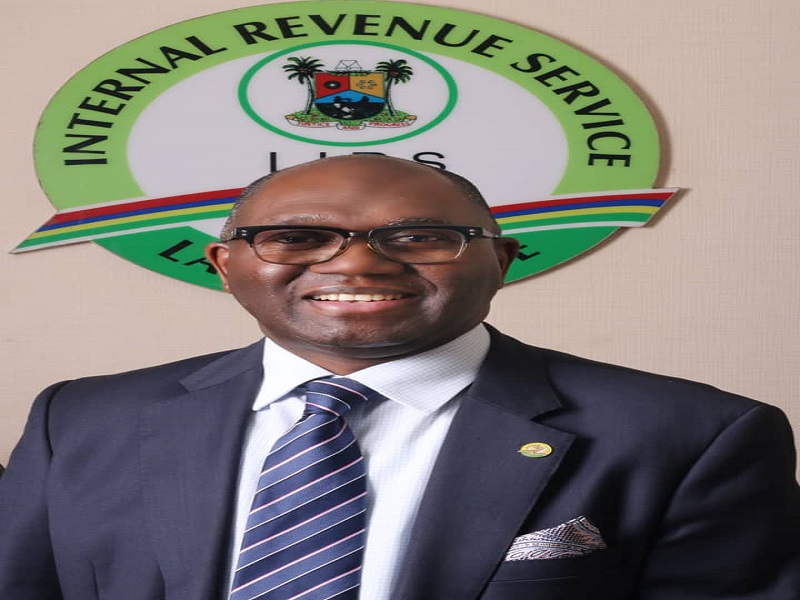News
How We Repositioned NIPOST in 2 Years — PMG

Dr. Ismail Adebayo Adewusi, postmaster general of the Federation, on Tuesday reeled out steps taken by the agency to reposition itself in line with the modern global business realities since he assumed office two years ago.

Adewusi was named the Chief Executive Officer of the Nigerian Postal Service on December 23, 2019 by President Muhammadu Buhari.
Speaking at an interactive session in Abuja on Tuesday, Adewusi said though the pandemic which struck few months into assumption of office almost stalled a comprehensive reforms package he came to NIPOST with, he explained that COVID-19 and its impacts however opened new world of possibilities which his administration did not waste time to leverage.
The Postmaster General said the pandemic rather hastened the process of digitalisation of the agency’s processes, adding that two years down the line, customers of NIPOST are seeing the changes, which have been brought to bear on its operations.
Adewusi, who expressed appreciation to President Buhari and Prof. Isa Ali Ibrahim Pantami, minister of Communications and Digital Economy, for what he called their commitment to the advancement of digital economy, listed a number of initiatives NIPOST had explored to boost business and enhance operations.
He added that the achievements of the last two years could also not have been possible but for the cooperation enjoyed from the National Assembly through the Senate Committee on Communications and its House of Representatives counterparts.
He said Senator Oluremi Tinubu, chairman Senate Committee on Communications, and Hon Hakeem Adeyemi, House Committee Chairman, played crucial roles in the successes recorded by NIPOST.
He said within the period in review, the African Development Bank partnered with his agency over its agricultural programme with a view to using its facilities.
He said: “The African Development Bank sought partnership with NIPOST to drive agricultural transformation in Africa’s economy with the Special Agro-Industrial Processing Zones initiative.
“The objective being to produce large stocks of marketable products using NIPOST’s warehousing, logistics and financial services.
“This initiative we, as an organisation, seek to explore to contribute to the economic development of the country while also expanding our revenue base.”
Towards more efficient service delivery, Adewusi said his agency has embarked on replacement of old infrastructure with new ones.
He cited the instances of new delivery trucks, refurbished postal outlets and acquisition of technology devices to enhance delivery.
He added: “The quantum leap in e-commerce necessitated drastic measures to cope with the surge in parcels/packet deliveries. NIPOST collaborated with a number of private transporters and logistics companies like Speedaf to ensure seamless deliveries.
“Recently, six additional new high tonnage trucks were acquired for e-commerce and logistics. This acquisition has greatly boosted the quality of service. Just as the collaboration with Speedaf Logistics Nigeria Limited led to the acquisition of 27 new 10, 20, and 30 tonnage trucks into our fleet.”
Revealing that under his watch, NIPOST has established the first digital centre in Enugu, Adewusi said the new face his administration is building for the agency will change the mindset of Nigerians on the ability of the agency to deliver world class services in logistics.
He said: “In last two years, some of our Post offices have been transformed into smart post offices.
“These include Eruwa, Awe, Omu-Aran, Gombe, Oshogbo, Ogbomoso, Ado Ekiti, Enugu Post offices.
“We want to transform the Post offices into hubs, a one-stop-shop, where citizens can access a number e-government services like applying for driver’s license, international passport, NIN registration, etc.
“This idea has become indispensable in new – normal world we live today.
“Also, the Nigerian Postal Service, under my supervision, has established its first digital center in Enugu, which includes computer-based training test (CBT) center, and other online transaction platforms.”
Expressing high hopes that the newly passed Postal (Repeal) Bill will further boost NIPOST business opportunities, the NIPOST boss said the Finance Act which has now conferred on the agency a role in stamp administration, the approval of new courier regulatory frameworks are all parts of the new developments which have substantially altered the way NIPOST does business.
He said: “I am very happy to inform you that today, we have a success story to tell, with the approval of a new courier regulation after 19 years.
“The last regulation was last reviewed in 2001.
“The new regulation empowers NIPOST to regulate the courier and logistics industry, checkmate the activities of logistics and courier companies in the country.
“The new regulations would sanitise the logistics ecosystem and put in check nefarious activities of the criminal-minded operators.
“Another milestone is the passage and signing of the amended Finance Act, 2020 by President Muhammadu Buhari to give NIPOST a role in the administration of Stamp Duty in Nigeria.
“It is gratifying for us to note that NIPOST (Repeal) Bill was passed by the Senate and House of the Representatives and it is awaiting assent by the President Muhammad Buhari GCFR.
“I am of great belief that the Bill, when signed, will reposition NIPOST for better service delivery.”
Adewusi also listed collaborations with agencies of the government such as the Economic and Financial Crimes Commission and National Drugs Law Enforcement Agency as part of efforts to ensure NIPOST plays crucial roles in national development and the battle against crime and drugs abuse.
He expressed optimism that things will further look up in the days ahead adding that a solid foundation has already been laid for better service delivery.
He said: “Giving the modest achievements we have recorded in the last two years of my administration, it is my candid belief that we are on the right track and determined to reposition NIPOST to an enviable height for effective service delivery to the citizenry.
“As we braced up to confront emerging challenges in the digital world, NIPOST is working assiduously to remain a veritable force to reckon with in the courier and logistics industry.”
News
Stanley Amandi, Nollywood Actor Arrested over Alleged Coup Plot against Tinubu

Stanley Amandi, veteran Nollywood actor and filmmaker, has been arrested by the Nigerian military over his alleged role in a foiled coup plot to overthrow President Bola Tinubu’s government, according to an exclusive report by Premium Times.

Stanley Amandi, Nollywood Actor
The filmmaker, also a former chairman of the Actors Guild of Nigeria (AGN) Enugu State chapter, was reportedly detained in September 2025 alongside several military officers accused of planning a violent overthrow, including potential assassinations of top officials, according to the newspaper’s sources.
Reports indicated that the coup plotters planned to wholesale assassination of top government officials including President Tinubu, Vice President Kashim Shettima, Senate President Godswill Akpabio, and Speaker of the House of Representatives Tajudeen Abbas, among others.
On Monday, the Defence Headquarters confirmed the plan to illegally oust the Tinubu administration, saying the indicted officers will be arraigned before military judicial panels.
In its statement, the Defence Headquarters said the investigation has been completed and forwarded to “appropriate superior authority in line with extant regulations.”
According to the military, the investigation was “comprehensive” and conducted in line with established procedures, examining “all circumstances surrounding the conduct of the affected personnel.”
The military disclosed that the findings identified “a number of the officers with allegations of plotting to overthrow the government,” describing such conduct as “inconsistent with the ethics, values and professional standards required of members of the Armed Forces of Nigeria.”
Mr Amandi has featured in many Nollywood movies and is known for his work as an actor, production manager and director.
His notable works include “The Album,” where he served as director; “Tiger King,” where he also served as director and produced in 2008; “Cornerstone,” produced in 2019; and “Once Upon a Dream,” in which he appeared as an actor in 2024.
Mr Amandi’s last Instagram post was on 19 September 2025, shortly before his arrest.
News
Firms Commit to Boost African Robotics Market

AfricAI and Micropolis Robotics have signed a multi-year exclusive distribution and deployment agreement, which marks one of the continent’s most significant robotics market entries.

Micropolis AI Robotics is a United Arab Emirates-based robotics manufacturer operating in autonomous systems, while AfricAI is a company building practical, revenue-driven artificial intelligence (AI) systems for African businesses, governments, and global partners operating in emerging markets.
According to the agreement, Micropolis Robotics named AfricAI as its exclusive continental partner, prohibiting direct sales, alternative distributors, and third-party agents from operating in the territory.
The partnership establishes AfricAI as the primary execution, localisation, and go-to-market platform for intelligent robotics in Africa’s industrial, security, logistics, and infrastructure sectors.
AfricAI said this exclusive mandate positions the company as the gateway for advanced autonomous systems entering African markets, ensuring regulatory compliance, local capacity building, and sovereign control over deployment frameworks.
The partnership, according to the two parties, moves beyond software- based AI into the realm of physical AI — intelligent machines capable of operating in complex, real-world African environments.
“This is not a collaboration, it is a market-shaping mandate,” said Fareed Aljawhari, CEO of Micropolis Robotics. “AfricAI now represents the exclusive gateway through which Micropolis technologies enter Africa. Their sovereign AI vision, operational reach, and regulatory fluency make them the only partner capable of executing at a continental scale.
Furthermore, the agreement enables AfricAI to integrate Micropolis’ autonomous robotics systems with AfricAI’s sovereign AI stack, resulting in AI-powered security and surveillance platforms, robotics-enabled logistics and port operations, industrial automation, smart infrastructure, and municipal robotics tailored to African operating conditions.
Initial deployments will commence in security, smart infrastructure, and logistics, with phased expansion across multiple African states as part of AfricAI’s broader continental AI, data, and intelligent infrastructure strategy.
The agreement also includes long-term performance-linked expansion rights, automatic renewals, and a defined localisation framework to support robotics deployment, workforce training, and skills transfer across Africa.
Prince Malik Ado-Ibrahim, executive chairman of AfricAI, said: “Africa does not need imported automation — it needs sovereign, context-aware intelligent systems. This exclusive mandate allows AfricAI to industrialise robotics deployment at scale while retaining control, compliance, and value creation on the continent.”
News
Subair: LIRS Won’t Raid Accounts – Unless You’ve Lost Every Court Battle

Lagos State Internal Revenue Service Executive Chairman Ayodele Subair Tuesday demolished online panic over alleged bank account raids, insisting the agency’s “Power of Substitution” targets only hardcore tax dodgers who have exhausted every appeal from tribunals to the Supreme Court over half a decade of disputes.

Ayodele Subair
Subair, speaking on Arise TV, shredded viral fears that LIRS would swoop on residents’ savings without warning, clarifying the mechanism under Section 60 of the Nigeria Tax Administration Act 2025 kicks in solely after assessments spark objections, reconciliations, demand notices, and a gruelling courtroom odyssey through High Court, Court of Appeal, and apex rulings.
The LIRS weekend notice had ignited fury by announcing enforcement via third parties – banks, employers, tenants, debtors – to claw back unpaid Personal Income Tax, Capital Gains Tax, Stamp Duties, and Withholding Tax from chronic defaulters holding funds or owing money to them, whether due now or accruing later.
Subair likened the process to a “long timeframe, not less than five years,” where recalcitrant bigwigs who stonewall every step become fair game, with LIRS directing agents like customers or partners to divert payments straight to the taxman in lawful settlement.
Far from arbitrary grabs, the chairman stressed it’s a final resort for “entirely recalcitrant” holdouts who ignore Notice of Refusal to Amend (NORA) and every olive branch, ensuring Lagos coffers snag rightful revenue fuelling the state’s bulging budget without shotgun raids on compliant payers.
As social media buzzes with defiance – “They can’t touch my account!” – Subair’s blueprint spotlights Nigeria’s tax evasion scourge starving subnationals of trillions yearly, with Lagos alone chasing billions in arrears amid federal revenue wars and economic headwinds squeezing the commercial capital’s 25 million souls.
Industry voices nod to the legality but plead for digital dashboards tracking disputes transparently, warning overzealous recovery could spook investors in Africa’s fintech and startup mecca already reeling from naira nosedives and grid glitches.
With LIRS poised to unleash the hammer on vetted violators, Subair’s clarion call aims to separate myth from muscle, bolstering Lagos’ IGR juggernaut that hit N815 billion last year while daring defaulters to test the full judicial gauntlet before crying foul.

 Telecom2 days ago
Telecom2 days agoPolice Bust ₦7.7bn Telecom Hack Gang, Seize 400 Laptops in Massive Fraud Swoop

 E-Financial3 days ago
E-Financial3 days agoPayPal Goes Live in Nigeria through Paga

 Broadcasting3 days ago
Broadcasting3 days agoNITDA, NBC Explore Strategic Collaboration on Digital Transformation, Media Regulation

 General News2 days ago
General News2 days agoNaira Smashes Through ₦1,400 Barrier in Official FX Rally

 General News2 days ago
General News2 days agoNCC Slaps ₦250,000 Fee on Trial Licences to Spur Telecom Innovation

 General News3 days ago
General News3 days agoFacebook Powers Connection, Creativity at African Creators Summit 2026

 E-Business3 days ago
E-Business3 days agoGold Hits Record $5,110/Ounce Amid Trump Tariff Threats, Geopolitical Fears

 Telecom3 days ago
Telecom3 days agoTikTok, Instagram Blamed in US Youth Suicide Lawsuit

















